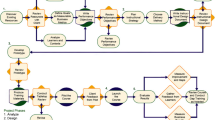Abstract
Textbook vetting and evaluation process intends to ensure that the materials provided are relevant, of the required quality, suitable ad would enhance learning efficiency and effectiveness. The paper investigates the role of publishers and Tanzania Institute of Education (TIE) in the textbooks vetting and evaluation process; examines factors used to vet, evaluate and approve primary and secondary school textbooks in Tanzania and proposes Strategies that would enhance the textbook vetting, evaluation and process. The study used a mixed method research design. Respondents were selected educational publishers; MoEVT, Baraza la Kiswahili Tanzania, TIE, and Publishers Association of Tanzania. Questionnaire and semi- structured interview were used to collect data which were analysed qualitatively and quantitatively. Major findings of the study were; textbooks vetting and evaluation process is not professionally conducted although standard criteria have been established; there is not well established roles among key players involved in the vetting and evaluation process leading to conflict of interest between TIE and the publishers. The study recommends establishing an independent professional evaluation board and a well-defined timetable and effective communication among various players; enacting a book policy and adopting a limited multiple-textbook publishing system.

Similar content being viewed by others
Notes
References
Altbach P. Book publishing. United States: Bellagio Publishing Network. 1997. http://www.unesco.org/webworld/wirerpt/wirenglish/chap23.pdf. Accessed 27 April 2016.
Askerud P. A guide to sustainable book provision; 1997. http://unesdoc.unesco.org/images/0011/001106/110638eo.pdf. Accessed 26 Sept 2015.
Bgoya W, Billany N, Lujanen M, Noonan R, Paajanen T, Syrjänen E. The economics of publishing educational materials in Africa. Oxford: ADEA Working Group on Books and Learning Materials. Perspectives on African Book Development, 2.
Buigutt S. Editor-author partnership in publishing. In: Buigutt S, Rotich D, editors. Contemporary publishing and book trade in Kenya. Eldoret: Moi University; 2009. p. 11–7.
Clark G, Phillips A. Inside book publishing. 4th ed. New York, Abingdon, Oxon: Routledge; 2008.
Educational Materials Approval Committee. EMAC manual of procedures. Dar es Salaam: Ministry of Education and Vocational Training; 1999.
International Council for Sciences and International Social Science Council. Sustainable development goals and targets. http://www.icsu.org/publications/reports-and-reviews/review-of-targets-for-the-sustainable-development-goals-the-science-perspective-2015/sdgs-report-supplement-goals-and-targets. Accessed 2 Jan 2015.
Jolly G. Book publishing management. New Delhi. India: Ashok Gosain and Ashish Gosain; 2009.
Mahmood K. Conformity to quality characteristics of textbooks: the illusion of textbook evaluation in Pakistan. J Res Refl Edu. 2011;5:170–190. Retrieved from http://www.UE.edu.pk/jrre.
Ministry Of Education And Vocational Training. WarakawaElimu Na.4 waMwaka 2014 KuhusuUtayarishajiwaVifaavyaKujufunzianaKufundishia. Dar es Salaam: The United Republic of Tanzania; 2014.
Porter M. From competitive advantage to corporate strategy. http://dl.lux.booksee.org/genesis/438000/58f354ba56448a94990d50d32b5d70b1/_as/%5BMichael_E._Porter%5D_From_Competitive_Advantage_to_(BookSee.org).pdf. Accessed 2 Jan 2015.
Reed T. Textbook provision in Tanzania: a review of issues; 2010. Retrieved from http://www.tzdpg.or.tz/fileadmin/documents/dpg_internal/dpg_working_groups_clusters/cluster_2/education/3-Core_Documents/TZ-_State_versus_Commercial_Textbooks_Tony_Reed_2010.pptx.
Rotich DC, Musakali J. Evaluation and selection of school textbooks in Kenya: the role of the ministerial textbook vetting committee. In: E. Bruillard et al. editors. Paper presented at eighth international conference on learning and educational media Caen; 2005. https://iartemblog.files.wordpress.com/2012/03/8th_iartem_2005conference.pdf.
Simam R, Rotich DC, Kemoni H. Educational publishing and provision of quality primary textbooks in Kenya. J Human Soc Sci. 2012;4(2):2012:117–127. file:///C:/Users/user/Downloads/86874-214501-1-PB.pdf.
Datus S. A guide to book publishing. Revised ed. Michigan: University of Washington Press; 1989.
Tanzania Institute of Education (TIE). Guidelines for evaluation of books. Dar es Salaam: Tanzania Institute of Education; 2015.
The World Education Forum. Textbooks and learning materials 1990-99: thematic studies. Education for all 2000 assessment; 2000. http://unesdoc.unesco.org/images/0012/001234/123487e.pdf. Accessed 2 Jan 2015.
The World Intellectual Property Organisation. Intellectual property issues in the publishing industry: the book publishing value chain in WIPO-FIP copyright workshop; 2007. http://www.wipo.int/edocs/mdocs/mdocs/en/wipo_ip_wk_del_07/wipo_ip_wk_del_07_www_215582.pdf. Accessed 2 Jan 2015.
Vladimirova K, Le Blanc D. How well are the links between education and other sustainable development goals covered in UN flagship reports? A contribution to the study of the science-policy interface on education in the UN system. 2015 http://www.un.org/esa/desa/papers/2015/wp146_2015.pdf. Accessed 3 Jan 2015.
Author information
Authors and Affiliations
Corresponding author
Rights and permissions
About this article
Cite this article
Rotich, D.C., Kogos, E.J. & Geuza, Z.R. An Investigation of Textbook Vetting and Evaluation Process in Tanzania. Pub Res Q 34, 96–109 (2018). https://doi.org/10.1007/s12109-017-9559-7
Published:
Issue Date:
DOI: https://doi.org/10.1007/s12109-017-9559-7




